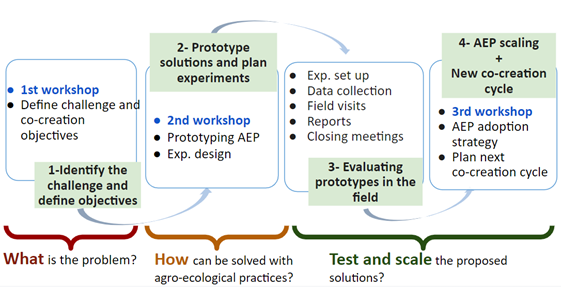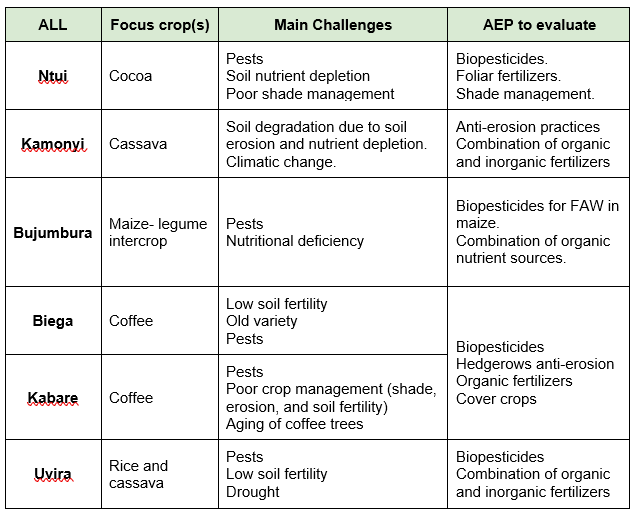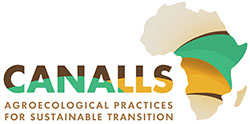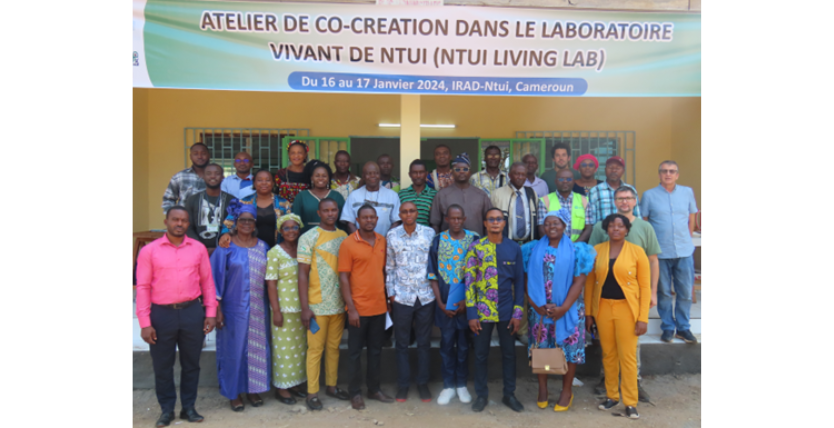Agroecology offers promising pathways to increase productivity and build resilience to socio-ecological, economic, and climate shocks, delivering holistic solutions to complex challenges in the food systems.
However, we still need well-tested and context-tailored agroecological practices (AEP) that can guide a transition effectively. Co-creation is a central element of the Agroecology living labs (ALLs), and in CANALLS we focus on the co-creation of combinations of AEP to overcome the main challenges faced by farmers and other value chain actors.
What is co-creation within the context of CANALLS?
Co-creation is the participatory and collaborative development of agroecological practices aimed at addressing the main challenges faced in the focus crops. This approach entails fostering collaboration among diverse stakeholders, including farmers, experts, governmental agencies, non-governmental organizations (NGOs), representatives from the private sector, and members of civil society. Co-creation of agroecological practices is a 4-step cycle where we start by 1) Identifying and understanding the challenges, 2) Mapping, prototyping, and prioritizing AEP combinations, 3) Evaluating the AEP combinations in the field and 4) Evaluating the results and planning scaling strategies and the next co-creation cycle.

Why is co-creation needed?
Input-intensive technologies have been traditionally developed and transferred in a linear, top-down approach. However, an incremental and transformational agroecological transition involves simultaneous technological and institutional changes, accompanied by an increased capacity for problem-solving from farmers and service providers to adapt the practices to the local context. Such a challenge calls for an innovation strategy that includes farmers and other actors in the agri-food system, improving the relevance and legitimacy while maintaining the credibility of science. Active involvement of end users in problem-solving and alternative development could increase the adoption of agroecological innovations and maximize the impact of agricultural research. A co-creation approach can help the stakeholders and other interested parties create their systems, modify them to fit their needs and create their compromises by utilizing both their own and scientific knowledge.
Where are we in the process of co-creation in the ALLs?
We started the co-creation activities in six out of the eight ALLs and we are expecting to start with the other two soon.
- In Ntui (Cameroun), Kamonyi (Rwanda), Bujumbura (Burundi), Biega (DRC), Kabare (DRC), and Uvira (DRC), we had two workshops and we completed the 2nd step of the co-creation process.
- After identifying the main challenges and performing a root-cause analysis for each of them, the stakeholders decided to evaluate different practices and combinations (Table below). We are now defining the details of the experimental design to be implemented as the 3rd step of co-creation.

What are the key lessons learned in the initial steps taken?
- In the six ALLs, we found good responses from stakeholders and active participation in the workshops. There is generally high interest in agroecology and commitment to continue with their participation in the ALLs.
- The ALLs and agroecology bring several new concepts for all the Moreover, a diversity of stakeholders also brings a diversity of interests. These challenges require excellent coordination of the workshops. As such, the experience of the facilitator and the support from other partners is key to achieving the expected outcomes of the activities.
Each ALL is unique and the design of the workshops and preparation of support material has to be adapted to the specific needs. Although we had similar objectives, the design of the activities and support material diverged significantly among ALLs.



